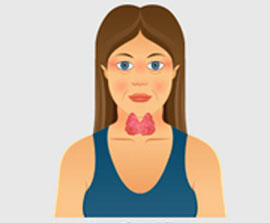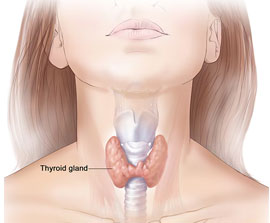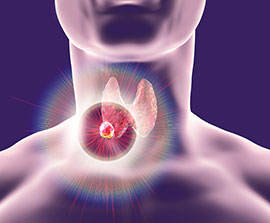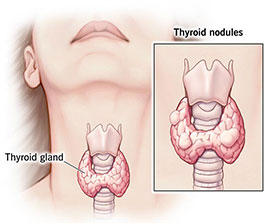
Thyroid Disorders
Thyroid disorders are associated with the thyroid gland. A thyroid gland is a butterfly-shaped gland situated right at the base of one’s neck. The role of the thyroid gland is to carry out numerous metabolic processes within the body. The brain regulates the functioning of the thyroid gland through a feedback mechanism. There are a number of disorders, both severe and trivial, which could affect the thyroid gland.
Major Sign & Symptoms of Thyroid Disorders:
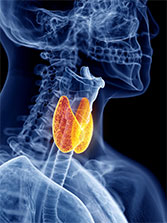
Other Symptoms Include:

Treatment Options:
Intake of thyroid hormone pills may prove beneficial. Once you start with the treatment, you may notice significant improvement within the first two or three weeks. Generally, once affected by thyroid disorders, one might have to be on these medications his/her entire life. Over time, this treatment procedure should result in lowering of the cholesterol levels, increased energy; but in certain cases, might throw up side effects in the form of sudden and unexplained weight loss.
Anti-thyroid medications help reduce and regulate the secretion of the thyroid hormone, thus treating certain thyroid disorders (such as hyperthyroidism).
Beta blockers are drugs help in reducing high blood pressure, heart palpitations and controlling heart rate.
In severe cases, such as enlargement of the thyroid gland, surgery is advised by the doctor, in which the thyroid gland is removed. Tumors or thyroid nodules are also treated by this surgical process.
In cases of thyroid cancer, besides the surgical procedure, radioactive iodine therapy (radioiodine) is recommended. This therapy helps destroy the thyroid gland and other thyroid (malignant) cells which may be taking up iodine. However, the side effects of this technique are minimal. This procedure helps to destroy those tissues which may not have been removed by the surgery. If the thyroid cancer has spread to the lymph nodes or to other parts within the body, this particular mode of treatment can be very effective.

